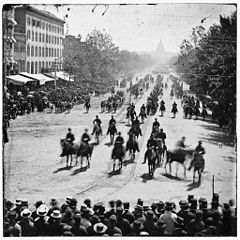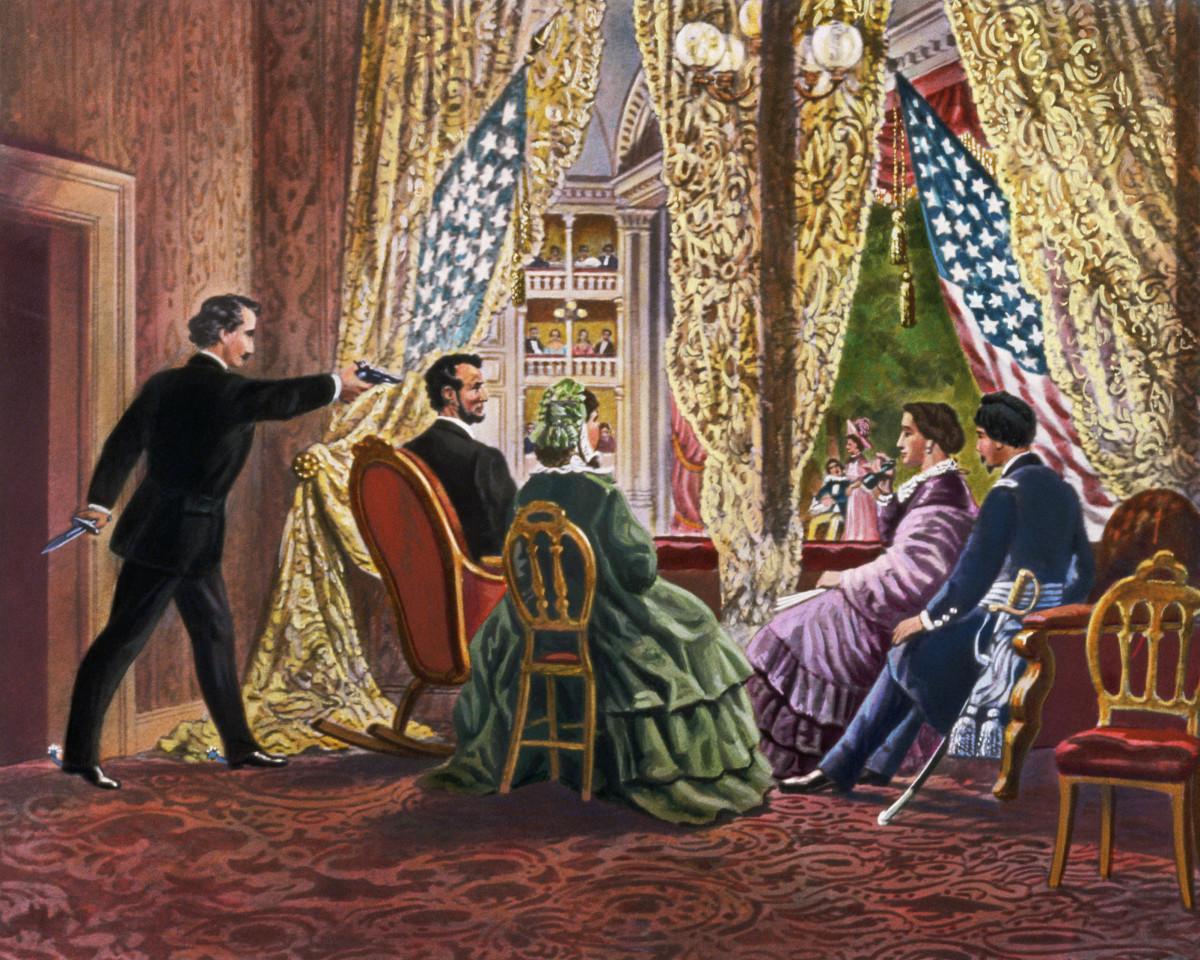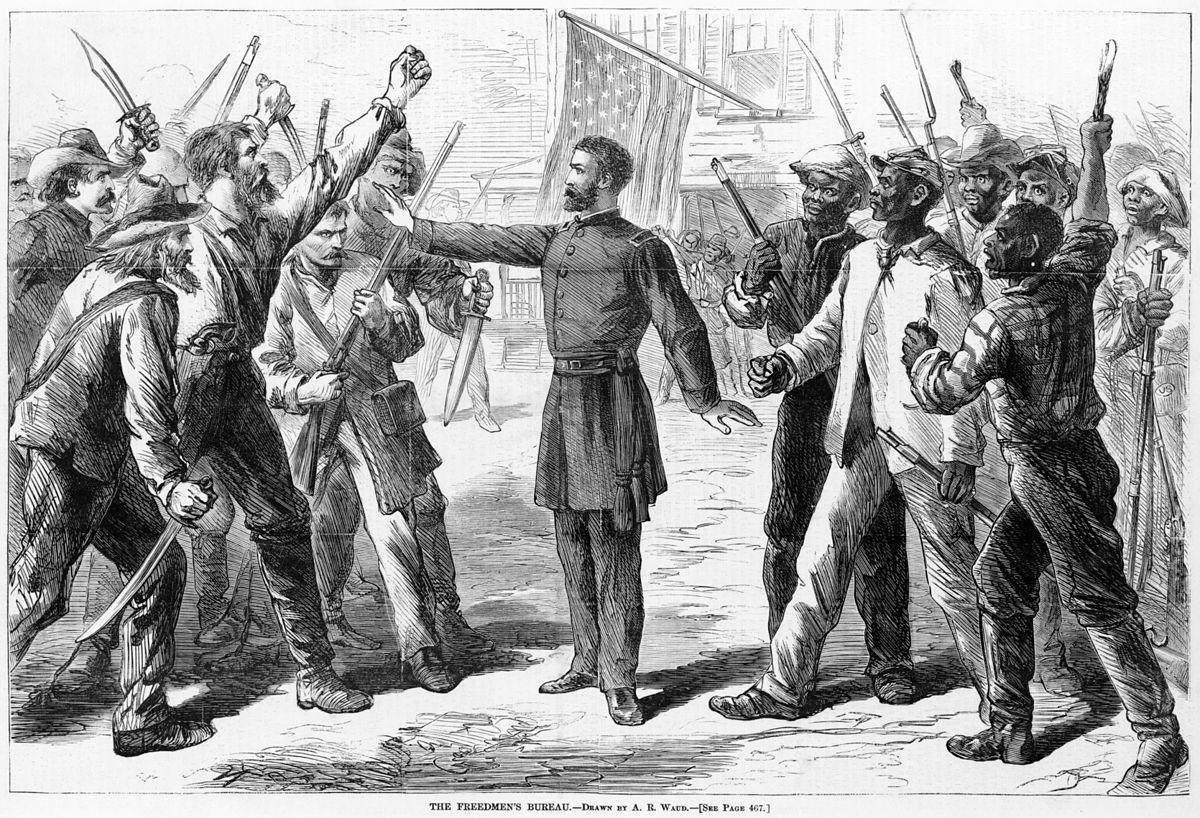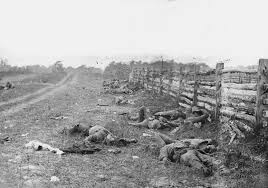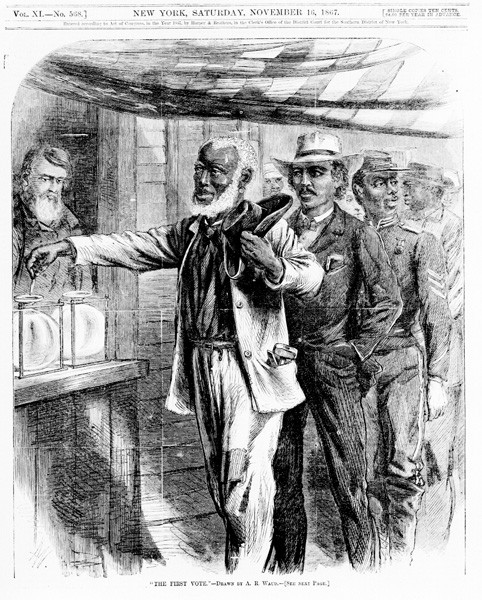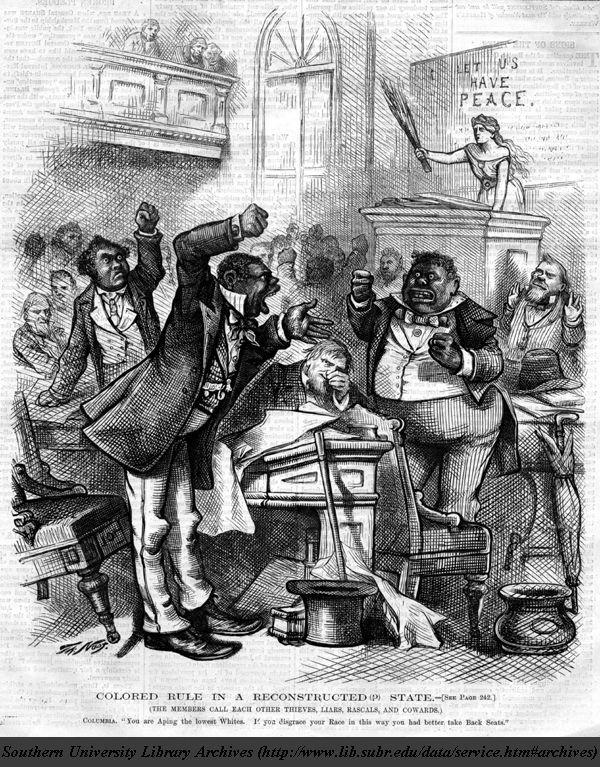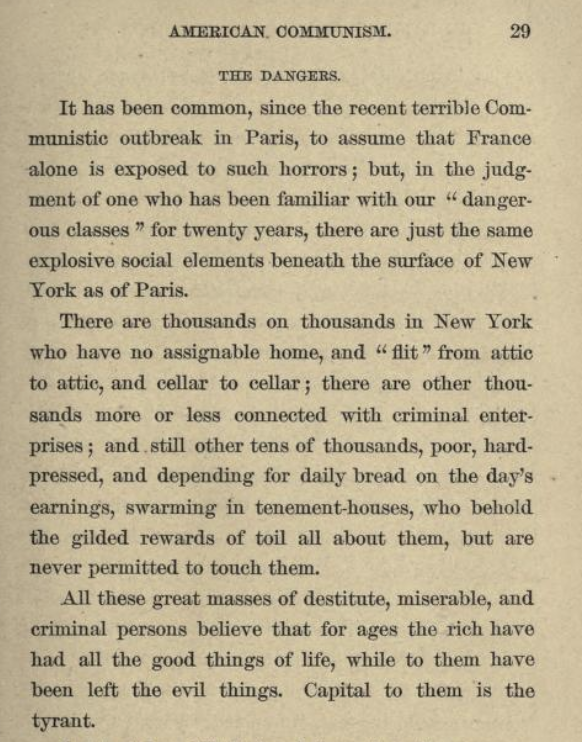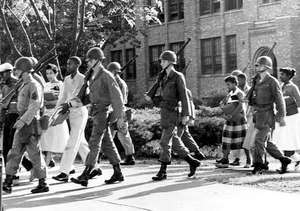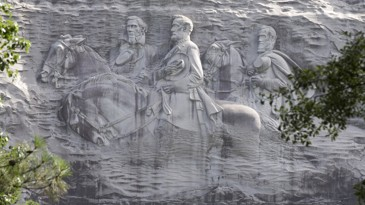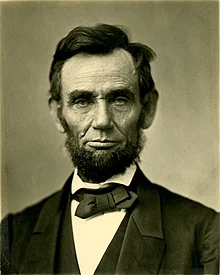After the Civil War, heroic individuals rebuild their lives and rededicated the nation. At the same time, angry and desperate men warped our politics in ways that still echo.
Let& #39;s take a look at Reconstruction, shall we? /1
Let& #39;s take a look at Reconstruction, shall we? /1
During the Civil War, the Republicans under Abraham Lincoln invented national taxation (including the income tax and the IRS), and ended racial slavery to enable black men to work hard and rise. The conjunction of these two things was crucial. /2
Taxes were enormously popular, except w/Democrats, who insisted they crushed ordinary Americans (in fact, the North thrived during the war). Still, everyone was happy when the war ended and the government was safe and strong economically. /3
Congress went on recess. Lincoln was so happy he took the night off and went to the theater. An unfortunate move, it turned out, because a racist Confederate sympathizer, convinced Lincoln was becoming a dictator, murdered him. /4
Lincoln& #39;s vice-president, Andrew Johnson, was a Democrat who hated black folks and Republicans both. He knew that his own career was toast if he didn& #39;t have Democrats to support him. So he told southern whites to rebuild their prewar governments, but without slavery. /5
They did, passing Black Codes that essentially created black serfdom. Some whites cheated blacks of wages, raped them, assaulted them, and killed them. Black folks couldn& #39;t testify against whites, so couldn& #39;t protect themselves. /6
They turned to officials of the Freedmen& #39;s Bureau, established by Congress within the army, who decided in their favor 68% of the time in summer 1865. White abusers were furious at federal interference in their "local customs." /7
They began to say that they had not fought the war over slavery, but rather over states& #39; rights. They revised history for their present political needs. (This was wrong. This is what Georgia& #39;s Alexander Stephens, vice-president of the Confederacy, had to say about it....) /8
In December 1865, Congress met, and Johnson said Reconstruction was over. They had to seat the southern officials newly elected under his governments (including Alexander Stephens). The 1870 census would count blacks as whole people, these men would be more powerful than ever. /9
Northern congressmen said NFW. The war had taken 600,000 lives and more than $5 billion. They were not going to hand the government over to the men who caused it. They refused to seat the southerners, and named a committee to figure out the next steps. /10
Then, Congress passed a civil rights bill to give black men the same rights to protection of property and person as a white man, and expanded the Freedmen& #39;s Bureau to put folks on land and give them courts where they could testify. It seemed uncontroversial. /11
But Johnson vetoed them. He brought together taxation and black rights to argue the measures gave black people rights white folks didn& #39;t have, and would create bureaucracies that would cost white tax dollars. This was a redistribution of wealth that would destroy America. /12
Congress tried to guarantee black rights with the 14th and 15th. After all, black men were the only clearly loyal southerners, and had fought for the government, dying at disproportionately high rates. They ought to have at least as much a say in their government as rebels. /13
But the 15th gave Johnson& #39;s argument teeth. Democrats insisted that black voters would elect officials who would give them stuff paid for with tax dollars. And since white people owned most of the property, this equation could be spun as black voters taking white tax dollars. /14
When SC elected a black-majority legislature, opponents howled that a "proletariat Parliament" of "the ignorant class, which only yesterday hoed the fields and served in the kitchen" was "plundering taxpayers." In 1871, they formed a "tax-payers& #39; protest" against the rabble. /15
This exchange of class for race attracted northerners, who worried about their own workers doing the same thing. When Paris Communards took over their city in 1871, Americans worked they were next, especially after Chicago burned in October (hence the Mrs. O& #39;Leary myth). /16
If black voters were dangerous revolutionaries, good Americans should "redeem" the government from them. In 1876, southern reactionaries kept blacks from the polls. In 1880, the South went solidly Democratic. In 1890, new constitutions cut out black voters (and poor whites). /17
Black people who wanted the government to establish a level playing field were a "special interest" trying to pervert the country. They must not vote; they must not be in positions of power. They had to be purged from society. (Not going to post a lynching picture.) /18
There things stood until WWII, when people of color rallied to the US government and then demanded equality. In 1954, SCOTUS under former GOP CA governor Earl Warren outlawed school segregation in Brown v. Board. Eisenhower sent troops to do it. White southerners went nuts. /19
Young William F. Buckley, Jr., who staunchly opposed government regulation of business, started National Review in 1955 to stand against "Social Engineering" and "communism." He opposed Brown v. Board, and assured readers that blacks were culturally inferior to whites. /20
In 1956, southern politicians, led by SC Democrat Strom Thurmond, issued the Southern Manifesto rejecting desegregation, which would overturn "habits, traditions, and a way of life." When JFK and RFK desegregated Ole Miss in 1962, southerners called them communists. /21
In 1964, GOP presidential nominee Barry Goldwater opposed civil rights legislation. Strom Thurmond supported him and became a Republican, and Goldwater picked up five states in the Deep South (and his own state of Arizona). /22
But voters gave Democrat LBJ a supermajority, and in 1964 a bipartisan Congress passed a civil rights act, and then in 1965, the Voting Rights Act. The stage was set for a revival of Andrew Johnson& #39;s argument that black rights meant a redistribution of wealth. /23
GOP Richard Nixon courted Thurmond in 1968, adopting the "Southern Strategy," promising to turn race issues back over to the states. (Agnew dedicated GA& #39;s Stone Mountain in 1970.) Nixon claimed everyone who wanted a level playing field wanted a handout: esp. blacks and women. /23
Reagan gave the Reconstruction formula a new form, with the Welfare Queen. His language was about taxes and responsibility, but his message was clear: people of color and women who wanted a level playing field wanted white male tax dollars. /24
His strategist, Lee Atwater, spelled it out. Talk about tax cuts and people will hear racial dog whistles. It has been a key GOP strategy ever since. Reconstruction never ended. It set the weird twisting of race and class that continues to warp our national progress today. /25
But that is not what Lincoln and the Civil War GOP wanted. They deliberately used the government to promote equality of opportunity. It seems odd that a racist and power hungry accidental president, rather than Abraham Lincoln, should continue to determine our nation& #39;s fate. /END

 Read on Twitter
Read on Twitter

